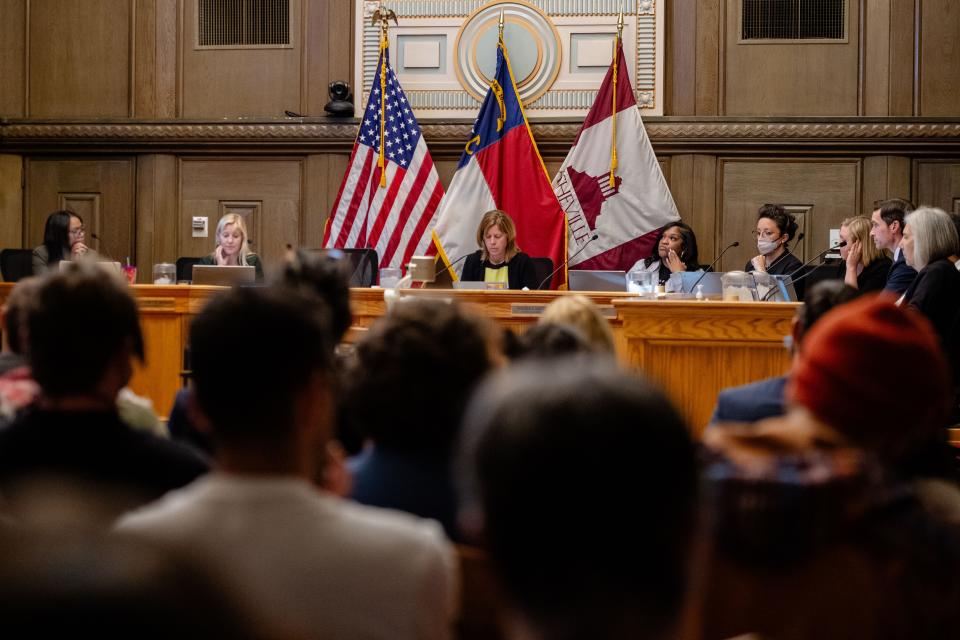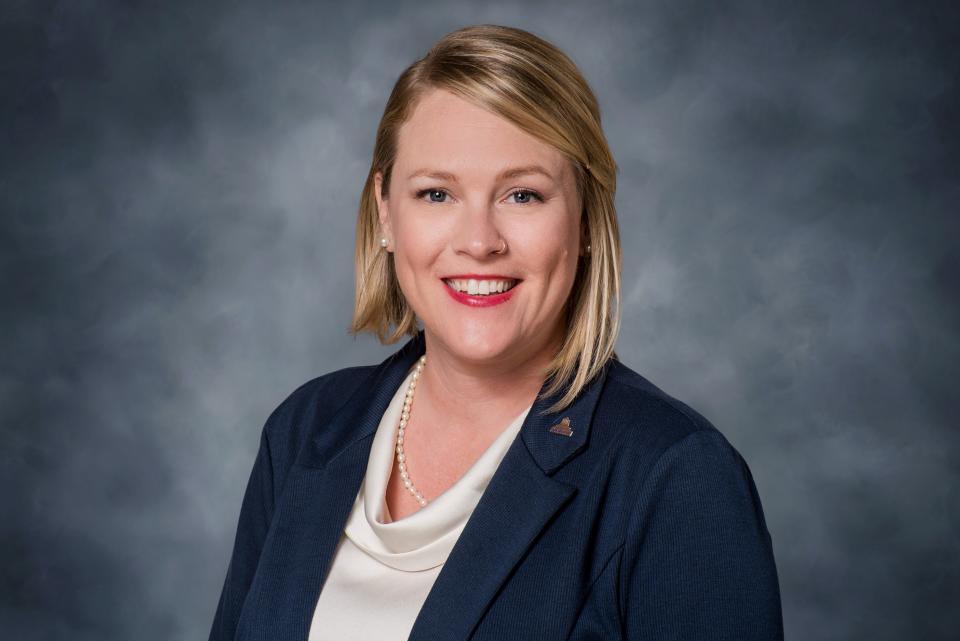Asheville council OKs water, parking rate increases. How could your bill change?
ASHEVILLE - City Council passed a slate of fee increases as part of its annual budget process, including significant rate hikes for commercial and industrial water customers and higher meter costs for parking downtown.
The new fiscal year 2025 fees and charges, which will go into effect July 1, were passed unanimously March 26.
Several area business organizations spoke up with concerns around the water rate increases, which attempt to address inequities in its structure, resulting in large increases for commercial, manufacturing and wholesale customers.

Rate increases: Water
Wholesale customers could see their bills more than doubling across the next three years. For certain commercial and industrial customers, a typical bill could see hundreds, if not thousands, of dollars in increases.
For years, the city's residential water customers have subsidized its commercial and industrial users, with residential users shouldering more than their fair share for the city's water supply, according to a new water rate model study from Raftelis, a Charlotte consulting firm.
When water rate increases were ultimately approved at a April 2023 budget meeting, council members and residents noted that the rate structure presented an imbalance for residential versus commercial users, with the latter getting breaks for greater usage, and facing lower rates than those of single family residential.
This year they attempt to start correcting it.
Rate adjustments are needed to fund a $240 million five-year capital program, the city says, which includes its ongoing meter replacement project, water treatment plant rehabilitation and other enhancements. Proposed changes across the system could generate approximately $2.4 million in additional revenue, according to a staff report.
“We don’t survive as a city if we don’t have a healthy water infrastructure, our economy doesn’t survive,” council member Maggie Ullman said. She and others voiced sympathy for the increases that will be seen by commercial customers, but said a three-year plan was found to be more equitable in the long run than a five-year transition that was explored in earlier committee meetings.

Council member Kim Roney said she's regularly voted against water rate increases in recent years because of concerns that residents were "picking up the tab," effectively subsidizing larger water customers.
“This is the first year that I’m able to support this,” she said.
There are two elements to the rate structure: base and volumetric rates.
Recommended increases for base rates, charged per meter size and assessed regardless of water usage, would see no increase this year — aside from the smallest meter size, the 5/8-inch meter, at 3%.
But the biggest changes would come to the volumetric rates, which is charged per centum cubic feet, about 748 gallons of usage.
Single family residential rates are recommended to remain steady this fiscal year at its current rate of $5.21 per CCF.
Of Asheville water system's 60,700 customers, 53,304 are single-family residential customers who are billed for about 2.8 million CCF of the system's total of 7.4 million, or 37.8%, according to the study. The next highest is commercial customers using 33.3%.
For Tier 1 commercial customers, rates would rise from the current rate of $4.41 to $4.95. For the typical user that's an increase from a $383 bi-monthly bill to $429, and 11% change.
For Tier 2 commercial users, customers with a larger usage, rates would rise from $2.74 to $3.24. For a typical bill, the city said, that's a $560 bi-monthly bill to $624, or 11.5%.
Increases look starker for the city's wholesale customers, of which there are only a handful of accounts, including Woodfin Water & Sewerage, the town of Black Mountain and the town of Biltmore Forest.
In year one, their rates would go from $1.23 per CCF to $1.64. A typical customer bill could increase from $23,221 in the current year to $30,575, a 31.7% increase.
Preliminary results of the Raftelis rate study were first brought to council's Policy, Finance and Human Resource Committee in September, with rate recommendations presented Dec. 12.
More: Asheville residents have been paying too much for water, city says; Other users face hikes
Rate increases: Parking
Council members also approved a number of increases to downtown parking fees. Proposed changes come amid funding needs for $11.3 million in parking garage repairs and efforts to better manage downtown parking: encouraging turnover and for people to head to one of the city's four downtown garages when parking for longer durations.
Among changes, the on-street hourly rate for metered parking spaces will increase from $1.50 to $2.50. Initially staff proposed an increase only to $2, but to extend downtown metering hours from 6 p.m. to 9 p.m., which council ultimately decided against — instead they moved for a higher meter rate rather than extending enforcement hours.
This alternate option will generate about $1 million in additional revenue, the same as the original proposal.
Meanwhile, the city will lower its daily maximum rates for its parking garages from $20 to $15. Special event rates, which have fluctuated in the past, will all be $9.

More: Asheville considers downtown parking meter rate increase, could extend hours until 9 p.m.
Rate increases: Stormwater and solid waste
Per the city's March 26 presentation, given by Budget Manager Taylor Floyd, aging infrastructure and deferred maintenance have created substantial needs in the stormwater system. Additional developments and more frequent storm events are putting greater strain on the system.
City council approved a 7% increase across the board.
For the city's solid waste fee, charged for solid waste, recycling and brush collection, currently $17 per household, there will be a $1 increase.
What do increases mean for a typical residential household?
Solid Waste: $2 bimonthly bill increase; $12 annual increase
Stormwater (tier 2): 94 cent bimonthly bill increase; $5.64 annual increase
Water (6 CCFs/month) 39 cent bimonthly bill increase; $2.34 annual increase
Total: $3.33 bi-monthly bill increase; $19.98 annual increase
More: Asheville Downtown Association pushes hard for Business Improvement District
Sarah Honosky is the city government reporter for the Asheville Citizen Times, part of the USA TODAY Network. News Tips? Email shonosky@citizentimes.com or message on Twitter at @slhonosky. Please support local, daily journalism with a subscription to the Citizen Times.
This article originally appeared on Asheville Citizen Times: Asheville council OKs rate increases for water, downtown parking

